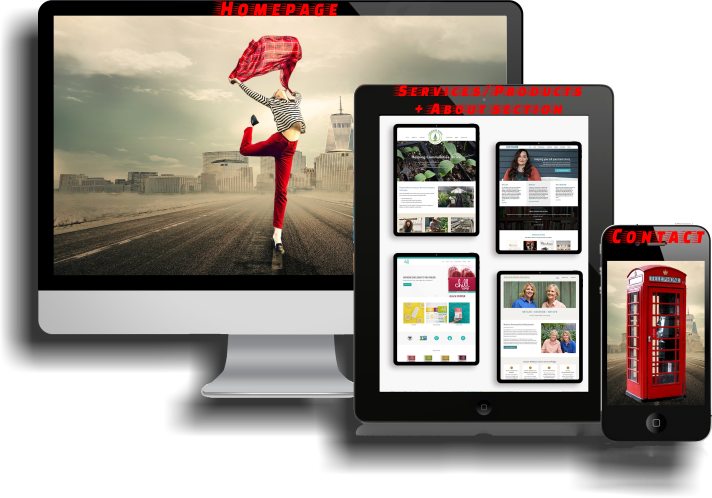Having a website for your business or organization is essential in this day and age, but it doesn’t have to be complicated or overwhelming. A small, 3-page website is often the best way to start, providing a simple but effective way to get your message across and attract customers. In this blog post, we’ll discuss why a small, 3 page website is important and how it can benefit your business.

A small website is easier to navigate
Having a website that is smaller in size, with fewer pages and fewer links, can make it easier for visitors to navigate and find the information they need. A smaller website is simpler for visitors to understand, as the amount of content is reduced and there are fewer menus and options to choose from. Navigation on a smaller website should be more straightforward, allowing visitors to find what they’re looking for quickly and without confusion. When developing your website, focus on providing a great user experience with a logical page structure and clear navigation. This will help visitors move through the site more easily and quickly find the information they need.
A small website loads faster
Websites that contain a lot of content and features can take a long time to load. This is because the browser has to pull in a lot of data to render the page properly. For this reason, smaller websites are much faster when it comes to loading times. A small website with minimal content can often load in under 2 seconds whereas a larger website may take several minutes. Furthermore, smaller websites don’t require the same amount of computing power as larger ones, so they can load faster even on slow connections.
Another factor in loading times is the number of requests that have to be sent and received. Each request requires more time and computing power, so the fewer requests a website needs to make, the faster it will load. Smaller websites usually require fewer requests than larger ones, resulting in faster loading speeds.
Finally, small websites tend to have smaller file sizes than their larger counterparts. The smaller file size means that the data required for loading is smaller and thus downloads quicker.
In short, small websites are fast and efficient. They can provide visitors with a great experience while saving time and money. If you’re looking to create a website quickly and cost-effectively, then a small, 3-page website might be the way to go.
A small website is less expensive to develop
When it comes to website development, having a small, 3-page website can be much less costly than building a full-blown website. This is because less time and effort needs to be devoted to developing the website, meaning that fewer resources need to be invested. For instance, developers may be able to skip features such as e-commerce, blog integration and more complex design elements, which can help reduce costs.
Additionally, the simpler structure of a small website means that there are fewer opportunities for potential coding errors or bugs. These issues can add up in cost and delay the launch of the website, so having a smaller site can help avoid this issue. Finally, by creating a smaller website you will reduce the amount of hosting and maintenance needed to keep the site up and running, again resulting in cost savings.
Overall, a small, 3-page website is a great choice for businesses on a tight budget who want to get their product or service online. By creating a smaller website you can benefit from lower development costs, fewer potential coding issues and reduced hosting costs.
A small website is easier to maintain
Maintaining a website requires a lot of time and effort. This is especially true for larger websites, which can be filled with hundreds of pages and require frequent updates. With a small website, however, the task of maintaining it becomes much easier. This is because there are fewer pages to monitor, and less content that needs to be updated or replaced. Additionally, since most of the content is concentrated in one place, it is easier to keep track of any changes that need to be made.
Small websites also generally require less maintenance in terms of security and performance. As there are fewer resources to be managed, it is less likely for there to be any issues in terms of hacking, malware, or slow loading times. This means less time spent on technical tasks and more time focusing on the actual content and design of the website.
Overall, having a small website makes the task of maintaining it much simpler and less time consuming. It also makes it easier to identify any potential issues, and ensures that the website runs smoothly with minimal maintenance requirements.

